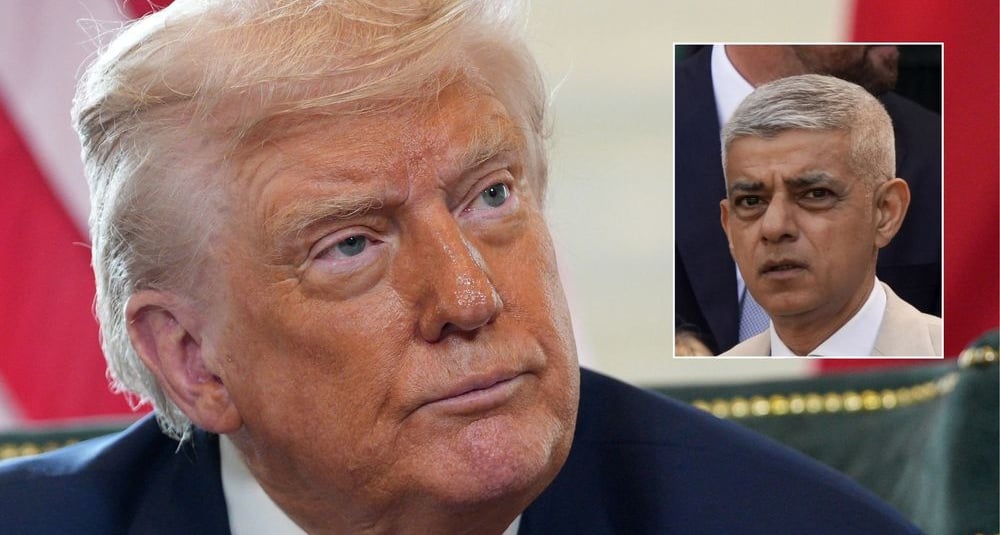Trump Labels London Mayor ‘Nasty Person’ in Tense Exchange with UK Prime Minister
The air in Turnberry crackled with tension as US President Donald Trump, on an informal tour of the United Kingdom, commanded headlines once again. In a press conference at his Scottish golf resort, Trump reignited one of his most enduring feuds, taking direct aim at London’s three time mayor, Sadiq Khan. Flanked by Prime Minister Keir Starmer, Trump’s remarks left little room for misinterpretation: “I’m not a fan of your mayor. I think he’s done a terrible job. The Mayor of London is a nasty person.” Starmer, caught momentarily off guard, defended Khan “He’s a friend of mine, actually” but the president remained firm, reiterating his criticisms.
INTERNATIONAL
Thinkbrief
7/29/20253 min read


This exchange unfolded as Trump fielded questions about the forthcoming state visit slated for September. Rather than softening his stance, he doubled down. “I think he’s done a terrible job. But I would certainly visit London,” Trump added, refusing to let the moment pass. The prime minister's brief response, paired with his measured composure, only served to underline the rift between the two leaders’ styles.
Sadiq Khan’s response radiated confidence and wit. Through a spokesperson, he welcomed the American leader with open arms: “Sadiq is delighted that President Trump wants to come to the greatest city in the world. He’d see how our diversity makes us stronger, not weaker; richer, not poorer. Perhaps these are the reasons why a record number of Americans have applied for British citizenship under his presidency.” Khan, a senior labor politician and the first Muslim mayor of London, has become a symbol of the city’s cosmopolitanism a reality Trump has repeatedly derided.
The Trump-Khan dynamic stretches back years and has never stayed beneath the surface. Their barbs erupted initially in 2015 as Trump, then a candidate, advanced controversial immigration policies including a proposed Muslim ban. Khan accused Trump of stoking divisions and targeting him for his background. In return, Trump labelled Khan “a stone cold loser,” challenged his intellect, and criticized his response to terrorism in the capital. Even after time and a change in US administrations, the antagonism remained raw. Before his re-election, Khan highlighted in interviews and podcasts his belief that Trump targeted him out of prejudice. “If I wasn’t this colour skin, if I wasn’t a practicing Muslim, he wouldn’t have come for me,” Khan stated last year.
True to form, Trump’s latest volley eclipsed the policy agenda expected of his summer sojourn with Starmer. At a time when the leaders were set to discuss pressing global concerns from transatlantic trade to the humanitarian disaster in Gaza, the spectacle shifted. Reporters noted the awkwardness in the room. Starmer, newly installed as prime minister after a whirlwind electoral cycle, forced a smile and a diplomatic phrase. Yet the moment exposed the limits of civility when personal animosities take hold at the highest levels.
Observers both in the United Kingdom and abroad immediately weighed in. The president’s unfiltered and undiplomatic remarks, as many described them, underscored his penchant for settling scores on the global stage. Social media erupted with contrasting reactions. Supporters celebrated the candor, critics lamented the coarsening of international discourse. Political analysts pointed out the calculated nature of Trump’s approach, transforming a bilateral policy summit into a stage for old rivalries and bracing authenticity.
Starmer’s leadership was also under scrutiny. Confronted with a US leader all too willing to personalize diplomatic proceedings, Starmer’s defense of Khan was brief but telling, signaling solidarity without descending into a back and forth. The exchange highlighted the prime minister’s challenge: maintaining the transatlantic alliance while reaffirming core British values of inclusion and respect.
Khan, for his part, embraced the limelight with characteristic sharpness. His statement not only showcased London’s vibrancy but subtly jabbed at Trump’s record. A pointed mention of the surge in Americans seeking British citizenship served as a reminder of his city's draw. Khan’s team reiterated their conviction that London’s strength rests in its tapestry of communities, the very fabric Trump has so often critiqued.
As President Trump prepares for his anticipated state visit this September, the episode at Turnberry will remain a marker of the persistent fault lines in transatlantic politics, a contest waged not just over policy but identity, belonging, and the definition of leadership itself. The eyes of both nations, and indeed the world, will turn once again to London ready for the next act in a drama that shows no sign of resolution.